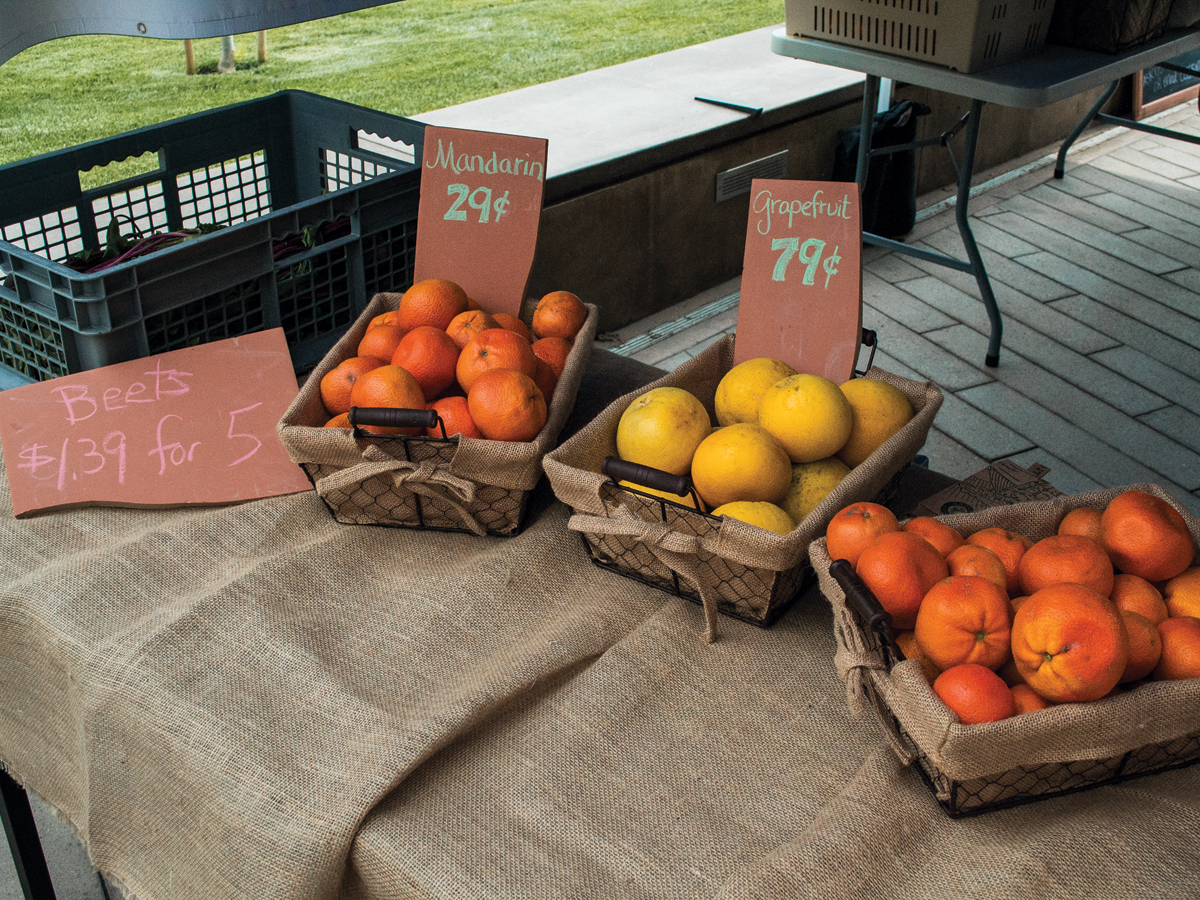
Seasonal and healthy produce has now become available and easier to attain through UCR Farmshare. Sponsored by the UCR Wellness Program, Dining Services and the UCR Global Food Initiative Committee, the program takes fruits, vegetables and herbs from local farms and brings them to students, faculty and the Riverside community. In partnership with the Old Grove Farm Share led by “Farmer Bob” Knight, a local farmer himself, the program helps make the farm-to-table vision a reality.
Knight explained that the Old Grove Farm Share is a group of local farmers who aim to provide “more flavor, better health, treat workers more fairly and support all (local) businesses” through this alternative food system. One step in that direction is through this program: “to have local eaters eat local produce,” he said.
This program falls under the category of community-supported agriculture (CSA), an economic model of agriculture that changes the way food is usually distributed to a household.
According to UCR Wellness Coordinator Julie Chobdee, the program started as a discussion between program sponsors and members of the R’Garden, who felt that it would be “a good test to see the demand for fresh produce on campus,” with the potential to help bring a future farmer’s market to UCR.
Every Thursday, participants who signed up for the program online pick up their fresh produce from the pickup spot located at the Market at Glen Mor. The shares come in two sizes, medium (for singles or couples) or full (for up to four people). Knight emphasized that the produce differs every week since the farmers only pick what is in season, allowing for a diversity of produce. Participants are also able to see exactly which fruits, vegetables and herbs will be available to them that week through the Old Grove Farm Share Facebook page.
At distribution, participants are able to pick and choose their produce depending on what is available that week and the share they selected. Participants are given an option of paying $18 a week for a medium or $28 per week for a full share.
Cassie Taan, Dining Systems Analyst for Dining Services, helps with Thursday distributions and is a current participant herself. “I absolutely think it’s a great program for UCR faculty and staff because it is helping local farms and also fresh produce has great benefits,” said Taan. “I have fruits and veggies throughout the week for snacks and dinner.”
Chobdee emphasized healthy eating, especially as part of the federal government’s nutrition guide, which recommends that one-half of a person’s plate be filled with fruits and vegetables.
“Freshly-picked local produce tastes so much better than that found in markets,” stated Chobdee, who is also a participant.
Various other faculty members are part of the program and have enjoyed the fact that a CSA program is conveniently available on campus.
Alexandra Dolan-Mescal, web developer and user experience designer for the UCR libraries, liked the idea of local produce going from farm to table. In comparison to produce at grocery stores, “the fruits and vegetables are just fresher and have less environmental costs,” said Dolan-Mescal. “I like that I know where my food comes from and that it comes from places close by.”
R’Garden Director Fortino Morales said that though the campus garden is currently not participating in the program, it hopes to feature its produce when it is not in-between season. “Dining has been incredibly supportive of R’Garden and they are excited to feature our produce when it is ready,” he said, adding that leeks, dragon carrots and kale would be available in the near future.
Some students are participating in UCR Farmshare, but those who aren’t have also expressed interest in doing so.
Tia Ray, a third-year political science major with a concentration in law and society and CHASS senatorial candidate for PAC, believes this program provides an “amazing opportunity” for giving the campus community greater access to fresh and affordable foods. “Our health is very important, and many students struggle to maintain a healthy diet,” she said.
As of now, the program has 141 participants in the eight-week trial program, which started in April 9 and ends on June 4. Interested participants can participate in the second half of the program, which begins on May 7.








